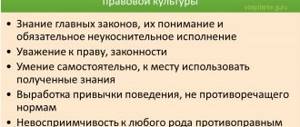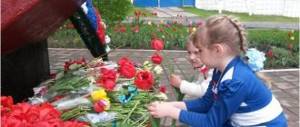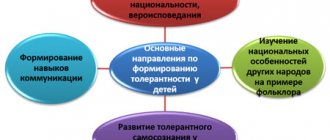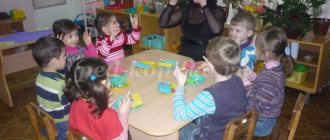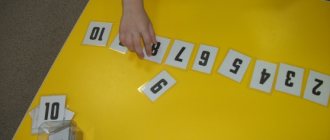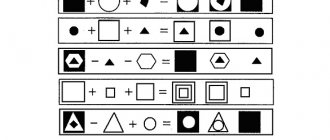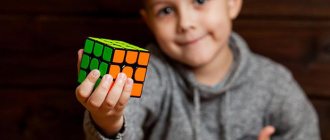Home / Family Law / Rights and Responsibilities / Children’s Rights
Back
Published: 04/27/2017
Reading time: 5 min
7
24721
Every little citizen, including preschoolers, has rights and state guarantees.
It happens that the rights of a child in a kindergarten may be violated, and the violators remain unpunished due to the lack of complaints from the children.
But, due to their age, they are not able to stand up for themselves. This can and must be done by parents or persons replacing them, guided by the current legislation of the Russian Federation.
- Legislative framework on the rights of preschool pupils
- What children can apply for in a preschool educational institution Enrollment in a preschool educational institution
- Rights to education and conditions for the development of creative abilities
- Conversations with other parents
Dear readers! To solve your problem, call hotline 8 or ask a question on the website. It's free.
Ask a Question
Legislative framework on the rights of preschool pupils
The most important laws and documents ensuring the rights of children are:
- Constitution of the Russian Federation;
- UN Convention on the Rights of Children;
- Federal Law “On Basic Guarantees of Children’s Rights in the Russian Federation”;
- Federal Law “On Education”;
- A number of administrative documents and instructions.
Article 3 of the UN Convention defines the primary interests of children. The importance of health and safety as well as the suitability of personnel is emphasized.
Particular attention is paid to the protection of children from violence of all types, rough treatment (Article 19), the orientation of education towards the personal development of everyone, the support of talents, mental and physical abilities (Article 29), the inadmissibility of cruelty and humiliation towards children (Article 29). 37).
The Federal Law “On Basic Guarantees...” covers in detail the issues of free medical care and health protection (Articles 10, 12).
State guarantees are provided for the protection of children from negative factors affecting health and development (intellectual, physical, mental).
Objectives of methodological work with teachers:
- acquaint teachers with innovative technologies aimed at the harmonious development of personality, with methods of influencing the consciousness, emotional and behavioral sphere of a preschooler;
- determine the main forms, methods and means of developing children’s self-esteem and self-awareness, developing knowledge about their rights, highlight the rights of the child under the UN Convention on the Rights of the Child, which it is advisable to introduce to preschoolers;
- arouse the interest of teachers in an in-depth study of the problem.
The purpose of educational work with the legal education of preschoolers is to give children basic knowledge about norms of behavior, to develop skills in observing them, an appropriate attitude towards lawful actions, deeds, as well as offenses, crimes, bad habits and other manifestations of antisocial behavior, to cultivate respect for parents, to introduce educators, peers, elderly people to the rules of caring for nature, their belongings, household items, and the like.
To achieve this goal, legal educational work with preschoolers involves solving a number of problems.
What can children in preschool educational institutions claim?
A small citizen attending a child care institution has rights, the first of which is the right to enrollment.
Enrollment in preschool educational institution
Children have the legal right to attend preschool educational institutions, and the place must be legally represented by the authorities.
When enrolling a child, each parent has the right to receive information of interest about the qualifications of teachers, routine rules, and classes conducted. Therefore, before enrolling in kindergarten, it is recommended:
- reading reviews on the Internet;
- preliminary visits;
- conversations with parents;
- communication with staff representatives.
- The agreement concluded by parents with the preschool educational institution defines the range of responsibilities and rights of parents.
Why does he need to know this?
There is so much that is missing from the long list of useful sciences that parents usually teach their children from a young age: reading and mathematics, English and geography, and the theory of chess for a snack. Abroad, the basics of law (or legislation) are necessarily added to this list, but in Russia for some reason such disciplines are not taught to children. Really, why does a child need all this boring stuff?! Mom and dad and kindergarten teachers will explain to the child that taking someone else’s property is dishonest, pulling Murka’s tail is cruel, and drawing flowers in a passport is fraught with spanking. It is not necessary to know everything else. Moreover, some parents believe that “extra” legal information embedded in a child’s head is like a TNT block: as soon as you tell the baby about the notorious “child’s rights,” he will immediately decide to complain about family tyranny and run “where he should.”
In fact, such fears are completely unfounded, because studying law for children (and their parents) will bring nothing but benefits. The behavior of both adults and children is regulated by a lot of rules - compliance with them guarantees (relatively, of course) personal safety and good relations with fellow citizens. In order to recognize himself as an independent person, it is very important for a child to determine the boundaries and connections between his own and others, rights and obligations, violations and responsibilities. Older preschoolers have even more serious concerns: they need to learn how to build contacts with peers and adults and resolve a wide variety of conflicts. The fundamentals of legal science (primarily provisions on justice, equality and humanism) can help a child establish comfortable and harmonious relationships with the outside world.
Children's rights after enrollment in a preschool educational institution
The main rights of a child in a preschool educational institution, guaranteed by the state, can be divided into groups.
Rights to education and conditions for the development of creative abilities
The staff of the preschool institution, in addition to routine moments, games, walks, provide developmental activities that contribute to their mental development.
For this purpose, Federal educational standards are recommended for preschool state institutions, and special educational programs are being developed.
Important! The lack of systematic developmental activities in preschool educational institutions is a violation of children’s rights.
The “Law on Education of the Russian Federation” classifies education within preschool institutions as the first stage of primary education (the fifth principle among 10 main ones).
When developing children according to general programs, it is important to preserve their individuality, which is covered by Article 8 of the “Convention...”. Therefore, when implementing an individual and differentiated approach to children, their talents and abilities are revealed.
The right to play, rest and relaxation
It is known that the leading activity of preschool children is play.
Through it, children’s creative and intellectual abilities develop and communication skills improve. During games, communication skills develop, moral and social qualities are cultivated.
Classes should be replaced by rest and entertainment, taking into account the mood and wishes of the children. A state of severe fatigue and tension is unacceptable.
Rights to life and health
This is the basic legal guarantee on which all others are based. To ensure this, entire systems of measures, safety rules, numerous instructions, and recommendations are being developed.
Children must be provided with timely medical supervision. Health protection, free medical care, and the right to health are guaranteed by the law “On Basic Guarantees...”, Articles 10, 12.
The right to protection from ill-treatment
Humiliation, insults, undeserved punishments, and threats are absolutely not allowed.
Battery and violence (not only physical, but also emotional and sexual) are unacceptable. This issue is covered in Articles 19, 37 of the “Convention...”.
Rights to protect the interests and needs of children
To protect the range of needs and interests of preschool children, it is recommended to adhere to the following principles:
- constant attention of staff to children;
- psychological comfort;
- compliance with food standards, equipment, materials, hygiene products;
- positive microclimate of the child care facility.
Psychological comfort involves bringing the level of comfort closer to home, excluding psychological violence and humiliation.
Parents have the right to attend open classes and events. High-quality nutrition should be complete. Parents have the right to familiarize themselves daily with the menu, portions, standards, and be interested in the quality of products.
Examples of rights violations
It is necessary to know what rights a child has in kindergarten are repeatedly violated and be able to react correctly and defend them.
- Every child has the right to attend kindergarten. It is unlawful to refuse a place in a preschool educational institution to a small citizen of the country in the absence of registration at the place of residence.
- The administration does not have the right to refuse to visit a preschool educational institution due to lack of vaccinations. Parents may completely refuse to vaccinate their child.
- Employees do not have the right to prohibit children from attending physical education and music classes if they do not have a uniform. After all, the rules for wearing a uniform are just a recommendation written in the charter, but not a law.
- According to internal rules, only the reception time is strictly regulated. Late children have the right not to be accepted. But parents have the right to pick up their child from kindergarten at any time, even before lunch. The main thing is that this happens no later than the established time.
- The contract regulates how long the place is retained if you do not attend the child care facility (70-90 days). During this period, if there is an application from the parents, the kindergarten administration does not have the right to expel the student.
- No conditions are legal when admitting children to kindergarten (for example, if the child does not go to the potty on his own or eats food only with the help of adults).
You can consult about any actions of employees of a child care institution to determine their legality. If they are confident that the rights of a preschooler have been violated, parents need to take measures to restore them.
International legislation on children's rights
Human rights were recognized and legislated in 1948 by the world community in the Universal Declaration of Human Rights. But this document did not regulate the rights and responsibilities of the child in any way.
The first document that touched on this topic was the Declaration of the Rights of the Child, adopted in 1959. But this document enshrined ten rules that were mandatory for individuals on whom the life and health of the child depended. And so, in 1989, the world community signed a document called the International Convention on the Rights of the Child , which established a number of rights and responsibilities for children.
The Convention on the Rights of the Child obliges the state that has signed it to protect the life, health and welfare of the child. A number of rights regulated by the Convention include the right to receive the necessary education, create families, express one’s individual opinion, the right to protection from forced treatment, to receive information, to medical care, and so on.
The implementation of all these norms is entrusted by the Convention to the child’s parents, as well as to persons who perform their functions. This document has fifty-four articles and each of them explains in detail the rights of the child.
Actions of parents in case of violation of children's rights in preschool educational institutions
First, you need to make sure that rights have been violated.
How to do it? Children tend to fantasize, and when asked directly: “Is Marya Ivanovna affectionate?”, they can compose a real fairy tale with war and ghosts. Although there is something to pay attention to in it.
But still, the pupil cannot determine the violation of his own rights by the employees of the child care institution. However, parents who know their child’s individual characteristics well notice changes in the child’s mood and his reluctance to go to the group.
Let's consider some ways to determine possible violations of children's rights in the kindergarten.
Conversations with other parents
From the stories of little citizens, it is quite possible to identify episodes about events with which he is pleased or not, which causes complete rejection, resentment, and fear.
Sometimes several children express dissatisfaction, based on similar facts. This is clarified during conversations with other parents in the group.
Role play at home
This is an effective way that leads to an understanding of the child’s relationships and the general situation in the group being visited. You can simply re-enact together with your child, for example, a day in kindergarten.
Let him be himself, his friend Misha, his teacher, his manager. Children tend to mirror the behavior of the people who interact with them.
By changing roles, you can learn a lot of interesting things. Of course, you can’t draw clear conclusions based on the results of the game, but it’s worth getting interested, taking notes, and trying to expand your assumptions.
By the way, parents will be able to notice their own shortcomings by asking their child or child to “be a mother.”
Puppet show
Let your favorite characters talk about kindergarten through the mouths of children and mothers. Of course, it’s worth encouraging your child to talk about something interesting, something he loves, something he likes.
But possible conflict situations that existed in reality will flash through during the construction of the fairy tale. It is unlikely that a child will be able to combine them in the absence of life experiences.
Observation
When you come to pick up your baby and find the children out for a walk, you can (this should not be embarrassing) observe from the outside the behavior of the children and teachers. Do adults actively interact with children or do they look away indifferently or (even worse) push children and shout at them?
Children’s communication with each other is also the merit (or shortcoming) of the teacher.
You cannot draw conclusions from single impressions or sensations. But if unpleasant facts are repeated, it is rather a system. This means we need to take action before it’s too late. After all, the child’s psyche is very vulnerable, the consequences can become irreversible.
Rights or responsibilities?
An important factor in familiarizing a child with his rights is the observance by parents of their parental rights. The Convention on the Rights of the Child draws attention to the fact that for every child’s right there is a corresponding parent’s obligation to respect that right. Disrespect for the child's opinion, unjustified critical attitude towards actions, shouting and insults humiliate the child's dignity. The child must know his rights, and parents must support the children’s exercise of these rights.
The existence of rights without responsibilities is impossible. The International Convention on the Rights of the Child also regulates the existence of responsibilities that children can perform. From early childhood, it is the parents who are required to talk about their responsibilities, such as cleaning toys and caring for pets. Just gradually involve your baby in performing certain simple tasks. Explain every step you take to your baby. Mom cooks to feed the family, mom cleans to keep the house clean. The child will grow up, and the range of responsibilities will increase in accordance with the child’s abilities. Parents should monitor the child's performance of their responsibilities, but remember to treat their child with equality and respect.
Compliance with these factors helps children make independent decisions and take responsibility for them, which means growing up and becoming independent and full-fledged individuals!
Author of the article: Ksenia Repina
Actions in case of violation of the rights of preschool children
Protecting the rights of the child in kindergarten is the concern of parents. When detecting misconduct on the part of employees, it is recommended to start with the simplest actions.
- Talk to the teacher calmly, discuss the problem without being overly emotional. At this level, most conflicts can be resolved. If the problem is not resolved, continue actions using other authorities.
- Raise the issue at a parent meeting. If necessary, invite a psychologist or social worker.
- Make a written appeal to the head of the institution.
- Seek help from higher state educational authorities.
- File a complaint with the prosecutor's office. Parents should be familiarized with the results of the official investigation.
Important ! Children are subjects of law. According to the constitution, they have the right to honor and dignity like other citizens of the country.
